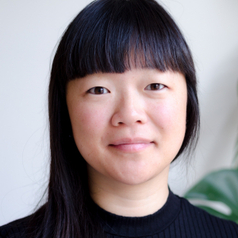
Line Jee Hartmann Rasmussen
Senior researcher of Psychology and Neuroscience, Duke University
Line is a Danish researcher with the Dept. of Psychology and Neuroscience, Duke University, and the Dept. of Clinical Research, Copenhagen University Hospital Hvidovre, Denmark. Line completed postdoctoral training with the Moffitt-Caspi Lab at Duke University, supported by an international postdoctoral fellowship from the Lundbeck Foundation.
With an M.Sc. in Molecular Biomedicine and a Ph.D. in Immunology and Infectious Diseases, both from University of Copenhagen, Denmark, Line is an immunologist and epidemiologist by training. Line has brought together the field of life-course epidemiology with a strong background in laboratory methods and biomedicine to address fundamental questions about health and illness from childhood to old age. Her research integrates theory and methods from immunology, clinical research, and population-based studies to identify the risk factors, measures, and outcomes of systemic chronic inflammation with emphasis on its role in biological aging and disease development. Her work is centered on biomarkers of inflammation and biological aging, with focus on the emerging systemic chronic inflammation marker “suPAR”. This work includes clinical prognostication using suPAR, as well as research into early life risk factors for systemic chronic inflammation, immunosenescence (aging of the immune system), and accelerated biological aging.
Less ![]()

Ling Li
PhD Candidate in Technology Facilitated Modern Slavery, Ca' Foscari University of Venice
Less ![]()
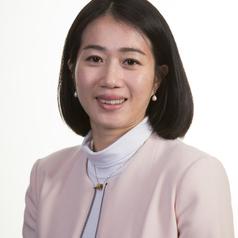
Ling Xiao
Senior Lecturer in Finance, Royal Holloway University of London
Dr Ling Xiao is a Senior Lecturer in Finance and Financial Management, the School of Business and Management, Royal Holloway University of London. Her research focuses on developing and applying novel financial econometric models to study carbon finance and sustainable finance issues. Her publications appear in peer-reviewed, international journals including International Review of Financial Analysis, Annals of Operations Research, Resources Policy, Energy Policy etc. Ling takes great delight in helping SMEs to address financial and non-financial challenges such as meeting net zero through innovative immersive storytelling techniques. In addition, Ling is devoted to developing an original transformative learning and teaching framework to foster inclusive education and education for sustainability development (ESD) in Higher Education. She is a member of the Centre for Research into Sustainability (CRIS) and the Digital Organisation and Society (DOS) Research Centre at Royal Holloway, University of London.
Less ![]()
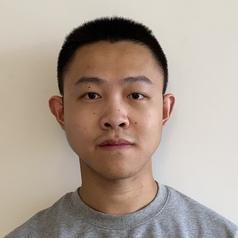
Linglan Zhu
PhD candidate in Music Technology, McGill University
I am currently a PhD candidate in the Music Perception and Cognition Lab (MPCL) at McGill University. I am also a student member of the ACTOR project (Analysis, Creation, and Teaching of ORchestration) and Centre for Interdisciplinary Research in Music Media and Technology (CIRMMT), in which I am involved in several student-led research projects. My general research interests concern how the musical timbre can be used as an important parameter in analysis of contemporary music, and how listeners’ perception can lever the process of analyzing new compositions.
Less ![]()
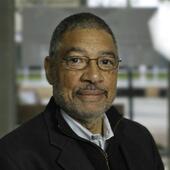
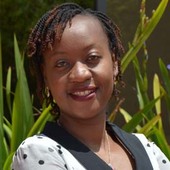
Linnet Ongeri
Principal Clinical Research Scientist, KEMRI Wellcome Trust Research Programme
Linnet Ongeri (MBChB, M.Med(Psych), PhD) is a psychiatrist and a scientist. Her expertise includes clinical research and development, public health and epidemiology, policy formulation, data analysis, and monitoring and evaluation. Her research interest is in designing and implementing appropriate cultural and regional research models that integrate mental health in primary health care. She is a member of the Taskforce on Mental Health in Kenya and collaborates with and guides the Ministry of Health Technical Working Group at the national and county level. She is also an investigator on several studies that include: 1) testing strategies for integrating non-specialist delivery of evidence-based interventions for depression and/or trauma-disorder with primary care services at public sector hospitals; and 2) analysing neuropsychiatric genetics of African populations. The latter is funded by the Broad Institute of MIT and Harvard. She has been a co-investigator in other studies exploring psychotherapy for HIV+ women affected by gender based violence, prevalence of post-partum depression among women attending selected maternal and child health clinics, and mental health assessment in primary care facilities.
Less ![]()
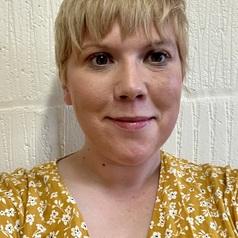
Linsey Robb
Associate Professor, Northumbria University, Newcastle
Linsey Robb is Associate Professor in Modern British History at Northumbria University. Her work focuses on cultural, social and gendered histories of the Second World War. Key publications include Men At Work (2015), Men in Reserve (2017), Men, Masculinities and Male Culture in the Second World War (2018) and British Humour and the Second World War (2023). She is currently working on a cultural and social history of conscientious objection in Britain during the Second World War, research which is funded by an Arts and Humanities Research Council Research, Development and Engagement Fellowship.
Less ![]()
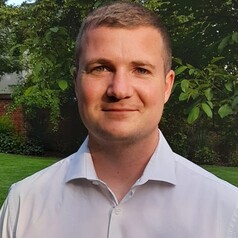
Linus Peitz
Postdoctoral Researcher, Psychology, University of Greenwich
Linus Peitz works as a postdoctoral research associate at the University of Greenwich and at the University of Kent on various projects investigating social and psychological mechanisms related to criminal behaviour and reoffending.
He received his PhD in social psychology from the University of Kent in 2021 and has previously worked as a postdoctoral researcher in the Faculty of Psychology at the Philipps University Marburg and the School of Anthropology and Conservation at the University of Kent.
Linus’ research focuses on the impact of groups and how they contribute to peoples’ attitudes and behaviours in different social, professional and political contexts.
Less ![]()
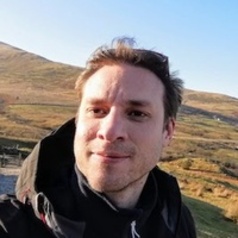
Linus Girdland Flink
Visiting lecturer at Liverpool John Moores University, lecturer in biomolecular archaeology, University of Aberdeen
I specialise in ancient DNA analysis and am particularly interested in animal domestication and past human demography. I also have a keen interest in wet-lab ancient DNA methods.
My current research covers genome analysis of Early Medieval Picts in Scotland; assessing past biodiversity in Scotland and Ireland via environmental ancient DNA (NERC-funded QUADRAT PhD project at the University of Aberdeen); and past mobility and migration in prehistoric Scotland (University of Aberdeen-funded PhD project in collaboration with Marischal Museum, Aberdeen, and the Crick Institute, London).
Less ![]()

Linus Victor Anyanna
Graduate Research Assistant in Geology, Missouri University of Science and Technology
Less ![]()

Linzi Ladlow
Research Fellow in Family Research, University of Lincoln
Linzi Ladlow is a Research Fellow in Family Research. She is working on the ‘Following Young Fathers Further (FYFF) project. Linzi is interested in family life, young parenthood, youth transitions, housing, and the environment. She enjoys researching collaboratively and has expertise in qualitative longitudinal research, and creative, and participatory research.
Less ![]()
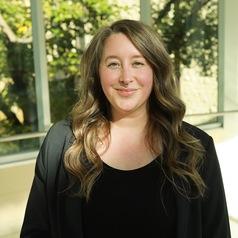
Linzi Williamson
Assistant Professor, Psychology & Health Studies, University of Saskatchewan
I am an Assistant Professor in Psychology & Health Studies at the University of Saskatchewan and Credentialed Evaluator through the Canadian Evaluation Society. My research centres the voices of Canadian veterans with disabilities working with service dogs.
Less ![]()

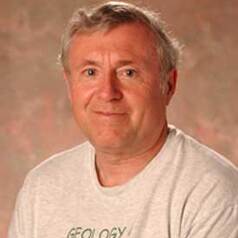
Lionel Wilson
Emeritus Professor, Lancaster Environment Centre, Lancaster University
By background Lionel is a physicist; his doctoral thesis was concerned with the load-bearing properties of the surface of the Moon just prior to the Apollo landings. When ancient lava flows were detected on the Moon in images taken by the astronauts he was amazed to find that there was essentially no literature on the physics of volcanic eruptions that he could use to analyse these flows; as a result he has spent the last 50 years developing mathematical physical models of all types of volcanic eruption.
Spacecraft data have shown that all of the silicate planets - Venus, Mars, Mercury, our Moon, Jupiter's satellite Io, and even some asteroids - have been volcanically active at some point in their lives. Comparing eruption deposits on these bodies, which differ as a result of differences in the acceleration due to gravity and the presence or absence of an atmosphere, has been a major spur to Lionel's research. He has been involved in the analysis of data from virtually all of the spacecraft that have visited the inner planets and asteroids, as a Principal Investigator in the Nasa Planetology Program, and as a Visiting Professor at two U.S. institutions, Brown University and the University of Hawai'i. His contributions to planetary volcanology have been recognized by the American Geophysical Union, with the N.I. Bowen Award in 1983, and by the Geological Society of America, with the G K Gilbert Award in 2005.
Less ![]()
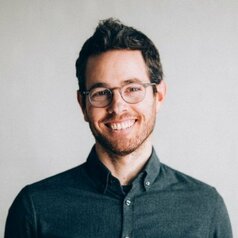
Lior Sheffer
Assistant professor in political science, Tel Aviv University
Dr. Lior Sheffer studies elite political behavior. His research focuses on executive decision making, exploring if and how people who run for office differ from non-politicians when they solve problems and reason about the policy choices they have to make. He specializes in fielding large scale experiments with incumbent politicians as participants, across different contexts and countries. His broader substantive interests are in elections and campaigns, the role of personality in politics, and legislative behavior. Methodologically, he is interested in survey and field experiments, survey design, and application of psychological modules and insights in the study of politics.
Lior received a B.Sc. in Mathematics and Cognitive Science and an M.A, in Public Policy from the Hebrew University of Jerusalem. He earned his PhD in political science from the University of Toronto. His research has appeared in the American Political Science Review, Journal of Politics, Political Psychology, Political Behavior, Electoral Studies, and Political Research Quarterly, among other journals.
Less ![]()
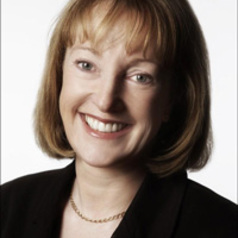
Lis Howell
Director of Broadcasting, City University London
Lis Howell is Director of Broadcasting and head of the MA courses in Broadcast and Television Journalism. She is also Deputy Head of the Department of Journalism.
Lis is a major award-winning journalist and broadcasting executive who has worked for BBC, ITV, Channel 4, and Sky News. She was Senior Vice-President at Flextech Television (later Virgin Media) where she founded Living TV, now a key channel on Sky.
Prior to that she was Managing Editor of Sky News where she produced their coverage of the first Gulf War from Saudi Arabia and Kuwait. She won a Royal Television Society Award for coverage of the Lockerbie disaster from ITV Border when she was the first female Head of News at ITV.
She was a television reporter and presenter at Granada and Tyne Tees and began her career in journalism as a producer and reporter at BBC Radio Leeds. In 1999 she chaired the Guardian International Edinburgh Television Festival. In 2001 she attended the prestigious Harvard Business School Advanced Management Programme.
Currently Lis is a member of the Royal Television Society where she regularly chairs the News Programme of the Year Awards. She is also a judge for the Broadcast Magazine television Awards. She is a member of BAFTA and a regular contributor to Broadcast Magazine, openDemocracy and OurBeeb. She has appeared several times on the BBC Radio 4 Today programme and on BBC One's Newswatch and is a respected commentator on broadcasting.
Less ![]()
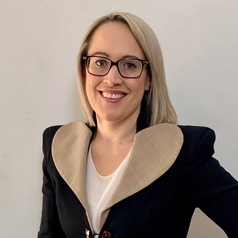
Lisa Asher
Retail Expert, PhD Candidate & Sessional Academic, University of Sydney
After ~20 years experience within FMCG/CPG interfacing with grocery retailers and all other consumer channels across tier 1, tier 2, regional manufacturing and start up suppliers, I am seeking to help solve industry problems through academic research.
I have been fortunate enough to undertake my PhD at The University of Sydney which ranks #18 globally in QS rankings for 2025. I commenced part-time in 2022, and within two years my research area was a global issue. I see this as fortunate. I engage weekly with industry bodies, suppliers, retailers, regulators and government. helping solve issues which industry is too busy to solve, will help make it better and keep the industry and consumers. This is the most fun I have had in a long time, fixing problems which help more stakeholders is what drives me.
Less ![]()
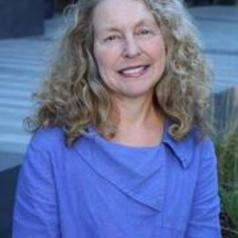
Lisa Bero
Chief Scientist, Center for Bioethics and Humanities and Professor of Medicine and Public Health, University of Colorado Anschutz Medical Campus
Professor Lisa Bero is a pharmacologist and researcher in evidence-based health care who is internationally renowned for her studies on the integrity of clinical and basic research evidence that is used to influence health policy, and the manner in which evidence is communicated to key groups such as physicians, policy-makers, journalists and the community.
Professor Bero is recognised for her methodological studies on bias (including publication/reporting, design and funding biases) in the fields of clinical medicine (pharmaceuticals), tobacco control and environmental research, and on the use and implications of the evidence for prescribing decisions/policy.
Her expertise lies in investigating hidden biases in the design, conduct and publication of research, and includes ground-breaking work that demonstrated the selective reporting of data for drugs approved by the FDA which showed that including unpublished outcomes of drug studies in meta-analyses changes the results of all relevant meta-analyses. These findings have contributed to open access data reforms such as access to information from drug regulatory agencies and improved reporting requirements for clinical trials on the clinicaltrials.gov registry.
Less ![]()

Lisa Cooper
Lecturer in Law, University of South Australia
Lisa Cooper is a lecturer in law, specialising in criminal law and procedure. She is admitted as a barrister and solicitor of the Supreme Court of South Australia.
Less ![]()
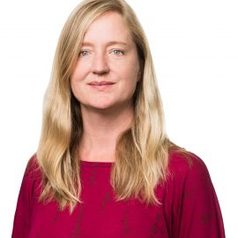
Lisa Coulthard
Professor, Department of Theatre and Film, University of British Columbia
Professor of Cinema and Media Studies
Social Sciences and Humanities Research Council of Canada Insight Development Grant 2021-2023
Principal Investigator: Lisa Coulthard
Collaborator: Lindsay Steenberg, Oxford Brookes University
Title: Digital Dark Tourism: a case study of true crime tourism in the digital age
Social Sciences and Research Council of Canada Insight Grant 2018-2022
Principal Investigator: Lisa Coulthard
Collaborator: Lindsay Steenberg, Oxford Brookes University
Title: “Between Blood and Data: Anatomy of the Post-Millennial Hollywood Fight Sequence”
Social Science and Research Council of Canada Insight Grant 2014-2019
Principal Investigator: Lisa Coulthard
Title: “The Sounds of Violence
Less ![]()
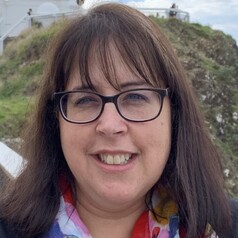
Lisa De Bortoli
Senior Research Fellow, Australian Council for Educational Research
Lisa De Bortoli is a Senior Research Fellow at the Australian Council for Educational Research.
Lisa De Bortoli is the National Project Manager for Australia for the OECD Programme for International Student Assessment (PISA), which examines reading, mathematics and science of 15-year-old students.
Less ![]()
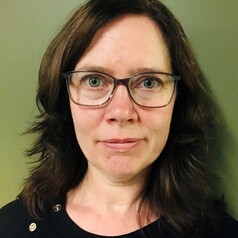
Lisa de Kleyn
Research Fellow, Centre for Urban Research, RMIT University
Lisa is a Postdoctoral Research Fellow at RMIT University in the Centre for Urban Research. Her research takes an environmental justice perspective on a range of issues including urban greening, housing, and natural resource management. Current projects including housing energy efficiency transitions, urban greening governance, and flood justice.
Less ![]()
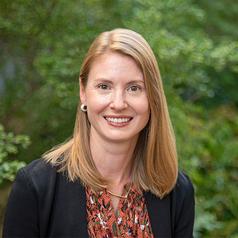
Lisa De Simone
Associate Professor of Accounting, The University of Texas at Austin
Lisa De Simone is an Associate Professor of Accounting at the McCombs School of Business at the University of Texas at Austin, a Public Voices Fellow of The OpEd Project, and cohost of the podcast Taxes for the Masses (available wherever you get your podcasts). Her research examining how multinational corporations and individuals respond to tax incentives worldwide has been published in top accounting and finance journals. She teaches and has taught tax and personal finance courses to students in BBA, MPA, MBA, and PhD programs. She was previously an Associate Professor at the Stanford Graduate School of Business from 2013 to 2020. She earned a BA in Economics and German Studies from Stanford in 2002, an MS in Accounting from the University of Missouri - Kansas City in 2008, and a PhD in Accounting from the University of Texas at Austin in 2013. Previous work experience includes transfer pricing consulting for Ernst & Young.
Less ![]()
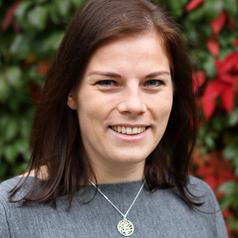
Lisa Dinkler
Postdoctoral Researcher in Psychiatric Epidemiology, Karolinska Institutet
Lisa Dinkler is a postdoctoral researcher in psychiatric epidemiology at the Centre for Eating Disorders Innovation (CEDI) with primary research interest in eating disorders and neurodevelopmental disorders. Her current research focuses mainly on avoidant/restrictive food intake disorder (ARFID). Using epidemiological and twin designs as well as genome-wide association studies, I am trying to understand the genetic and environmental causes of ARFID, its comorbidities (e.g., with autism, ADHD, and anxiety), and its course over time.
Less ![]()
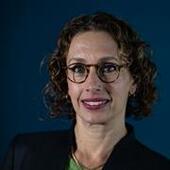
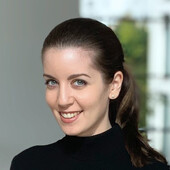
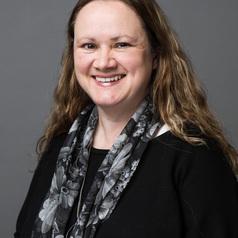
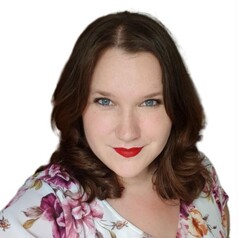
Lisa Garwood-Cross
University Fellow in Digital Health & Society, University of Salford
Dr Lisa Garwood-Cross is a researcher in Digital Health and Society at the University of Salford, Manchester. Her work looks at the impact of social media and digital technologies on society, particularly in relation to health and wellbeing. Her current work explores social media health influencer cultures and how audience trust translates into health influence. Her previous work includes a study of YouTube sex education influencers and the 'COVID Sex Lives' project that looked into the impact of the pandemic on the sex lives and digital habits of men who have sex with men. Lisa also works with health organisations about digital capabilities in the healthcare workforce and social media.
Less ![]()
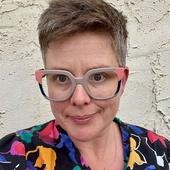
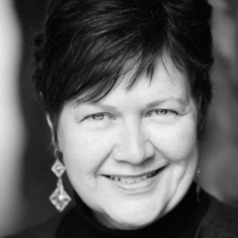
Lisa Goff
Lecturer of English, University of Virginia
Lisa Goff joined the University of Virginia's American Studies faculty in the fall of 2012 and has a joint appointment with the Department of English. A cultural historian who studies the American landscape, she teaches classes in cultural landscapes, public history, theories and methods of American Studies, the history of journalism, and gender and social media. She recently launched a new digital history project, Take Back the Archive, dedicated to the history of sexual violence at the university. She is also director of the Institute for Public History, which places students in paid internships at museums, archives, and historic sites in central Virginia.
Her first book, Shantytown, USA: Forgotten Landscapes of the Working Poor, will be published in April 2016 by Harvard University Press. The book argues that shantytowns constitute an alternative vision of American urban space between 1820 and 1940, and that conflicts over shantytowns as places and symbols of working-poor culture were an essential element in the formation of twentieth-century class difference in the United States. She is currently working on a second book project, which examines restoration as a theoretical concept and a practical application that spans disciplines, geographies, and centuries.
Less ![]()
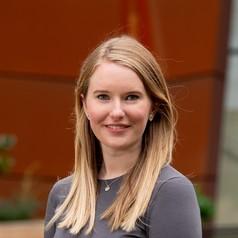
Lisa Graham-Wisener
Lecturer of Health Psychology, Queen's University Belfast
I am a Lecturer in Health Psychology in the Centre for Improving Health-Related Quality of Life (CIHRQoL), in the School of Psychology at Queen’s University Belfast (QUB).
My research interests are broadly in the assessment and management of psychological wellbeing and quality of life in chronic conditions. In particular I am interested in psychological adjustment and quality of life in cancer and palliative and end of life care populations, including intervention development (e.g. music therapy, mindfulness, ACT) and validation and implementation of outcome measures. I am also interested in public health approaches to palliative and end of life care.
Less ![]()
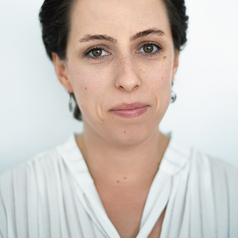
Lisa Keenan
Assistant Professor in Political Science , Trinity College Dublin
Lisa Keenan is an Assistant Professor in Political Science at Trinity College, Dublin. Her research interests include the underrepresentation of women in political life and violence against political actors. She is co-investigator of the candidate studies in the Republic of Ireland.
Less ![]()

Lisa Kelly
Senior Research Assistant, Canadian Centre for Evidence-Based Conservation, Carleton University
I hold a PhD in Biology from Carleton University, where I also currently work as a senior research assistant with the Canadian Centre for Evidence-Based Conservation
Less ![]()
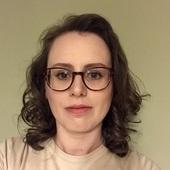
Lisa Knight
Head of External Engagement & Professional Programmes, Liverpool John Moores University
Less ![]()
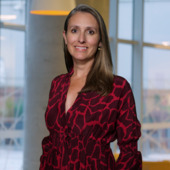
Lisa Lake
Director, Centre of Excellence in Sustainable Fashion + Textiles, University of Technology Sydney
Less ![]()
- Market Data





















